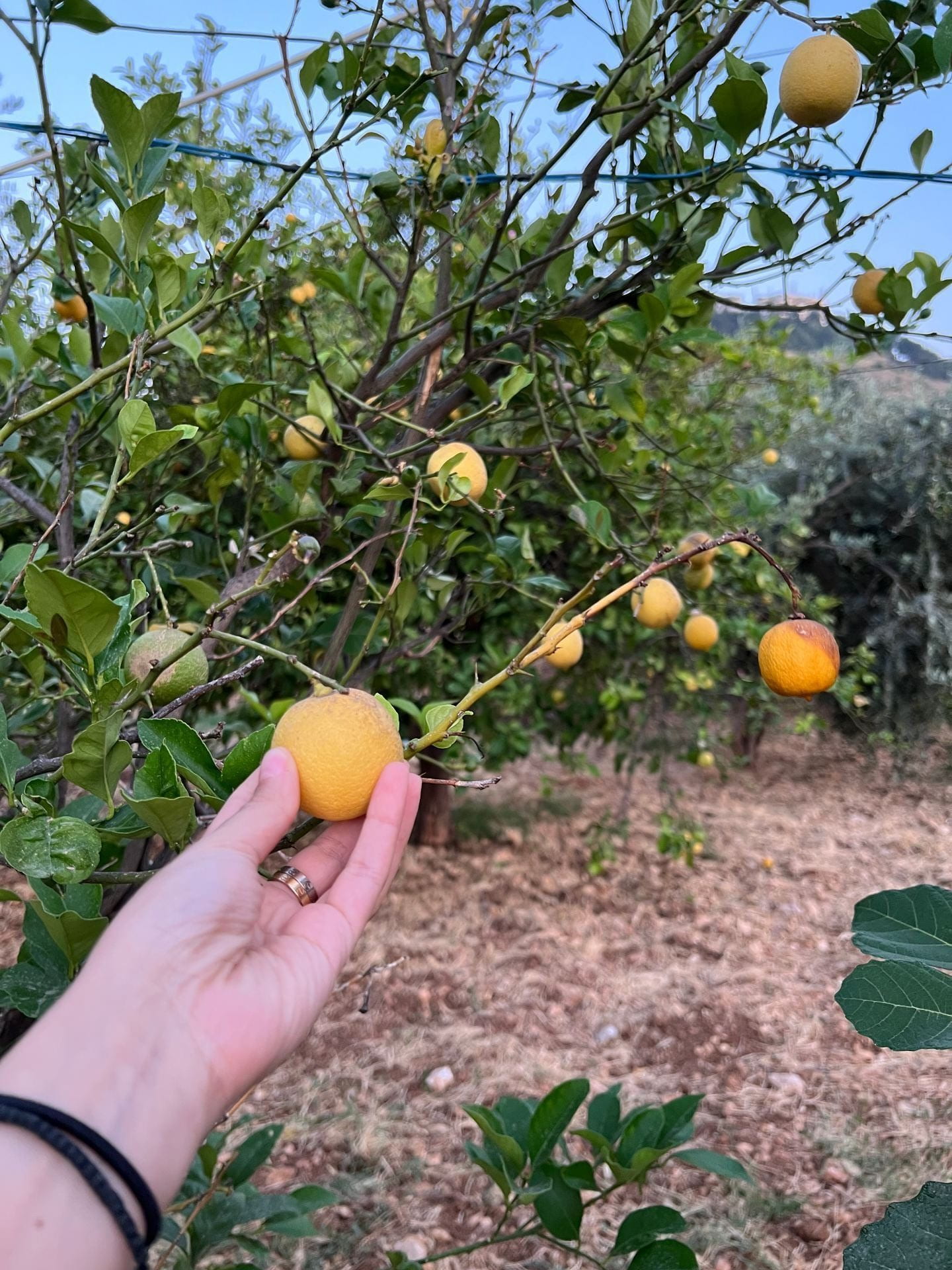Nutrition education in Lebanon
 Coming from a family of dentists and doctors, Julia Metri ‘23 was always interested in healthcare. In college, she worked in hospitals and clinics in Haiti, and then as a vascular surgery unit technician in Boston. While there, the Covid-19 pandemic arrived. “The hospital turned into a Covid ICU overnight,” she recalls. She noticed that most of the critical care patients were people of color, even though Boston’s population is mostly white. “I started asking questions about why different people have different outcomes,” she remembers, “and that led me to public health.” Metri was drawn to Cornell’s Public Health Program for its connection between sustainability and equity, she says—“it just seemed intuitively right.”
Coming from a family of dentists and doctors, Julia Metri ‘23 was always interested in healthcare. In college, she worked in hospitals and clinics in Haiti, and then as a vascular surgery unit technician in Boston. While there, the Covid-19 pandemic arrived. “The hospital turned into a Covid ICU overnight,” she recalls. She noticed that most of the critical care patients were people of color, even though Boston’s population is mostly white. “I started asking questions about why different people have different outcomes,” she remembers, “and that led me to public health.” Metri was drawn to Cornell’s Public Health Program for its connection between sustainability and equity, she says—“it just seemed intuitively right.”
Metri knew she wanted to work in Lebanon for her public health internship. Though she grew up in the United States, her family is Lebanese. After the disastrous Port of Beirut explosion in 2020, she “began to think about how those who were already struggling would be pushed further.” As in most places, the pandemic had exacerbated existing disparities, and the port explosion damaged critical food silos and shut off access to imported food.
After weeks of sending out inquiries to universities and organizations working in Lebanon, Metri heard back from Mohammad Alzayed, Health Coordinator with Amel Association International. As a non-sectarian organization, the Amel Association is quite rare in Lebanon, where “it’s usually very politically and religiously divided,” notes Metri. The Amel Association was established in 1979 during the Lebanese Civil War, and now has over 1,200 workers and volunteers operating 28 health centers, six mobile medical units, and two mobile education units in the most marginalized Lebanese communities.
 When Metri arrived in Lebanon, Alzayed asked her to assess what type of intervention was most needed. To better understand the needs there, Metri began shadowing healthcare workers in clinics. She was drawn to social workers because they were more involved at a community level than doctors and nurses. The social workers told Metri that “nutrition counseling and other nutritional interventions would improve the work they were already doing,” she recalls, especially to combat nutrition-related chronic diseases, which are prevalent in Lebanon and “have been exacerbated by socioeconomic crises.”
When Metri arrived in Lebanon, Alzayed asked her to assess what type of intervention was most needed. To better understand the needs there, Metri began shadowing healthcare workers in clinics. She was drawn to social workers because they were more involved at a community level than doctors and nurses. The social workers told Metri that “nutrition counseling and other nutritional interventions would improve the work they were already doing,” she recalls, especially to combat nutrition-related chronic diseases, which are prevalent in Lebanon and “have been exacerbated by socioeconomic crises.”
After listening to the social workers and diving into the literature, Metri designed a one-and-a half day training with three modules: foundational nutritional concepts, application of nutritional sciences for disease prevention, and nutrition and health equity, especially for women and children. She used a ‘train-the-trainer’ model that focused on peer learning, because “the social workers were already trusted experts,” she says. They also operate in very different communities—“some urban and some rural, some in Beirut and some in the mountains, some with refugees and some with older populations.” Her goal was for social workers to take what they learned back to their own communities.
“Our Food Systems and Health course allowed me to understand the full picture of the food crisis in Lebanon from a systems perspective.” Climate change, Metri explains, will continue to stress the health and nutrition of Lebanese communities through intersecting challenges of diseases, natural disasters, and food access. For example, social workers want to deliver nutrition counseling based on the use of locally sourced foods and home gardens, but local agricultural methods are increasingly threatened by changing climate conditions.
Metri’s goal is to continue contributing to systemic change. Since graduating this year, Metri is pursuing a career in policy to “make the biggest difference possible to improve health equity.”
Written by Audrey Baker
